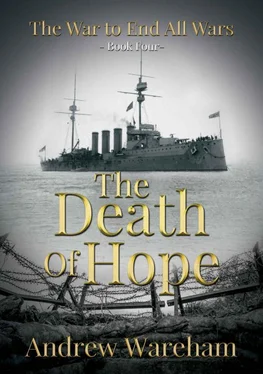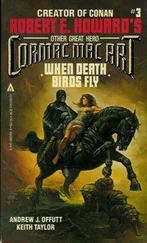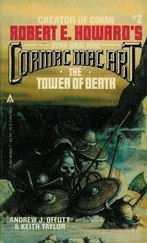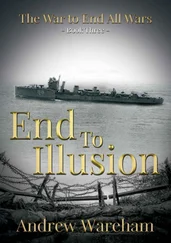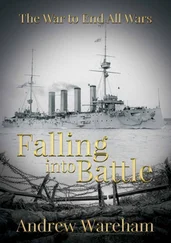It was not easy to write endearments – neither Navy nor Army had a place for ‘soppy sentimentality’ as he remembered an officer at Dartmouth describing romance in all of its forms. Officers should be in love with their service, taking a wife in their middle years so that the breed should continue – every officer should send one, at least, of sons to follow in his footsteps. There was no other way of maintaining the proper traditions, it seemed. The officer in question had seemed rather regretful that breeding was not possible without the involvement of women in the process. The Navy would be far better off without wives in the background, he had no doubt. He had given wise advice to the class – not to marry before attaining the rank of Commander, unless the bride had a substantial income to bring to the marital home, and to choose from a Naval family so that the girl had been brought up with an understanding of duty.
‘Finally, gentlemen, always remember – Duty First! There can be no choice between Home and the Navy – the Service always has priority.’
The words had been solemnly said, Richard recalled, the lieutenant commander in question, a forty years old bachelor, having no doubt of their wisdom.
He passed them on in his letter – Primrose needed a laugh.
The hour he set aside for himself each day had gone too quickly. He grabbed his tin hat and ducked out of his bunker.
“Paisley, I am going up to the first line for a quick look around.”
His batman appeared, Lee-Enfield slung, ready at his shoulder.
“Sidearm loaded, sir?”
The holster was empty, Richard having forgotten to take the pistol down from its hook on the wall.
“Bugger!”
He dived back inside, grabbed the revolver and flicked the cylinder out, checked it had five rounds, the chamber beneath the hammer empty.
“Thank you, Paisley.”
They set off the fifty yards along the second trench, turned into the communication trench leading the fifty yards to the front.
“Ought to be longer, Paisley. The Germans kept their lines too close together.”
“Makes it easier to support each other, sir. Can throw a bomb pretty near half way across from one to the other.”
They eased around the first dogleg, a favourite aiming point for snipers, present again now that the lines had stabilised.
“Got that sod yesterday, sir, what was sitting up over this one. Mr Michaels it was what spotted him. Up on top of one of them bunkers, he was, damned four hundred yards away. He called in the eighteen pounders to paste the bunker before he could get down and into cover.”
“Is that what the firing was about? Must have been twenty shells to kill one sniper.”
“Six of ours he got in the week, sir. All of them belly shot.”
A strong chance that all would die, slowly, taking up hospital beds and using up manpower to get them to treatment.
There was an argument for having many more snipers. The trouble was that few of the men would do the job. Sitting up in cover, waiting to fire aimed shots, deliberately killing selected targets, demanded a cold-bloodedness that most did not possess. The three snipers now in the battalion were respected, in a way, but had few close friends. Snipers were a unique breed, a bit doolally, in most soldiers’ opinion. Richard agreed with his men.
“Best thing then, to get him.”
He knew that Brigade would complain, would regard the expenditure of artillery rounds as unjustifiable to kill off one man. He was not inclined to care greatly what the men well distant from the firing line had to say, not any more.
“All well Captain Caton? I hear young Michaels showed well again yesterday.”
“Very much so, sir. That sniper was a damned nuisance. Any word on him?”
It was a month since Richard had recommended Michaels for an MC, very well earned, in his opinion.
“There is a backlog at HQ, it seems, Caton. They are too busy stabbing each other in the back to get on with running the Army.”
“What’s the word there, sir?”
“We can expect to hear that General Haig was taken over command of the BEF any day.”
“Another cavalry man!”
“So is Allenby, and he would do a far better job than either Haig or French. Even Smith-Dorrien would have been preferable. Neither is favoured in London, however.”
They said no more. Richard looked through the small viewing port that had been carved in the parapet, saw no change from the morning, when he had last looked.
“What’s that thing that submarines have, sir? For looking out when they are under the sea?”
“Periscope, Caton – lenses and mirrors in a tube… What a very good idea! I wonder how they are made. Do you know?”
Caton knew only that they existed.
Richard sat down in his bunker that evening and made a formal request to Brigade that the periscope should be investigated and, if practical, made on a small scale to be installed in the trenches. He sat down to another letter to Primrose, including a drawing of what he was thinking of.
‘Not much of an artist, my dear love. If I was, I would draw a picture of you to put up on my wall.’
He wondered if it was true that absence made the heart grow fonder, as they insisted. Certainly, he missed her. He suspected he was in love, which was rather strange and more than a little pleasing. He had long feared that he was a cold, heartless sort of person; it seemed that he was not.
“Paisley, could you get me a mug of tea, please.”
“Coming up, sir. Do you want a sandwich with it? I got hold of some Branston pickles and a can of the good ham this morning, sir. Bread is fresh today as well and I got some butter.”
“Well done, Paisley! If it cost anything, take the money from the drawer.”
Richard always kept a mixture of half sovereigns and francs to hand, never more than about ten pounds, topping it up when necessary. Paisley knew to use the cash if the opportunity arose for a little black-marketeering and could be trusted absolutely not to abuse the liberty – he would never do more than pick up the odd bottle of ‘vanrouge’ for himself, spending no more than sixpence once or at most twice a week.
“No need, sir. Came in as a favour, sir. The bloke what supplied the ‘Major with the blankets came across a case of each and sent them up to him gratis, being an old friend.”
Richard wondered what the quid pro quo had been. He also knew that it was none of his business. He would not ask, would not be told the truth if he did.
“What’s the buzz, Paisley?”
“General French to go next week, sir. Haig to take over. Bit of a shake up but none in our corps, sir. We go out of the line the week after, get Christmas in reserve, sir.”
The chances were that Paisley’s information was accurate.
“No leave this time round, sir. We gets a chance in February, one week for the men, two or three for the officers. Conscripts start coming in middle of March.”
“We need the men, Paisley.”
“They’ll be no problem, sir. They’ll knuckle under, see if they don’t!”
If that was the opinion of the senior men and the sergeants, it would do for Richard. They were the ones who would have the direct work of making the unwilling bodies fit in.
“Done it before, sir. Half the poor sods what came out to South Africa didn’t really want to but everybody else in the street was volunteering and they’d look yellow if they didn’t too. They fitted in, was just as brave as the rest.”
Richard was much of the opinion that bravery was no more than a matter of circumstance, more often than not. He was a hero, officially, and knew how it had come about.
“Good. That’s one less problem to worry about.”
That left him with the unending concern, the need to nurture an offensive spirit in the men. Standing in a trench, doing nothing other than wait, was destructive of morale. The old trench raids were no longer practical. He had to do something.
Читать дальше
